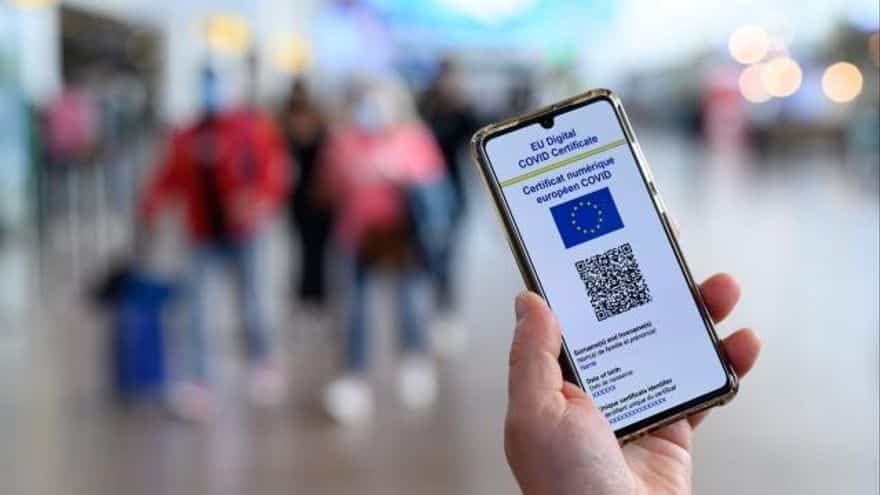Over 400,000 people have not yet been vaccinated against covid in the Valencian Community and it is at them that the introduction of covid passports is aimed when, pending confirmation by the courts, it comes into force the day after it is published in the Official Gazette of the Valencian Community.
With the anticipated start date of 3 December, it will be in force for a period of 30 days, thus covering the Christmas and the New Year periods.
From that date it will be an obligation in the Valencian Community to present the covid passport to gain entry to bars and restaurants.
The confirmation was given by the Valencian President, Ximo Puig, during a press conference that followed the meeting of the Interdepartmental Council, which once again insisted that there is no intention of applying new restrictions in the Valencian Community, unless the situation changes for the worse. However, Puig stressed, “the circumstances are under control” but it will depend on how the virus evolves and the incidence in the Valencian Community.

In recent days, the daily number of infections has multiplied exponentially, with the Alicante Province now being on the verge of the ‘high risk’ category, with more than a thousand cases of coronavirus in 24 hours, and the incidence rising on Saturday to 142 cases per 100,000 inhabitants, a cumulative incidence rate for 14 days that had not occurred since 3 September. In a single day across Alicante, 10 deaths were reported, something that had not happened in more than 8 months.
The Covid Passport will be mandatory in order to gain entry to hospitality establishments with a capacity of more than 50 people, nightlife venues, public and private care homes, hospitals, music festivals, organised events, weddings, baptisms, and communions.
The identity of each person must be confirmed with their DNI or other identity documentation when presenting the Covid Passport. The control of access to establishments will be done through a mobile application that will be directly connected with the administration. In this way, the authorities will know if the people who show the Covid Certificate are really vaccinated, as their passport must match the records that the Ministry of Health has about their vaccination state.
This will hopefully reassure those in the hospitality and leisure sectors, who this week asked for the means to detect illegal documents, where there has been an increase in the number that are now being offered for sale, mostly through social media, appealing to people who do not want to be vaccinated.
For an amount ranging from 50 to 250 euro you can get a false passport online, with the threat of prison sentences of six months to three years, and a fine, being little deterrent to them. The system will then immediately detect whether that person is vaccinated.
But it has not been explained how the system will deal with tourists and foreign-issued certificates.
Since the announcement last week there has been an increase in the number of official documents downloaded. Between 15 and 21 November, 218,271 documents were downloaded compared to 114,184 the previous week, according to data provided by the Ministry of Health. This represents an average of 31,181 certificates each day.
The President concluded his press conference by asking residents for prudence, stating that an unvaccinated person “has 20 times the risk” of being hospitalised or entering an ICU after being infected with covid, whatever their age, and the average risk of contracting coronavirus is three times higher, eight times higher if you are between 60 and 80 years old.
With over 400,000 Valencians still to be vaccinated against the coronavirus the objective of the Generalitat Valenciana is that “100% of the population is vaccinated,” said the president.
Data produced on Saturday showed the Marina Baixa to be the only area at extreme risk, with 362 cases per 100,000 inhabitants, but there are three other high-risk health departments, all of them with a sharp rise in recent days: Torrevieja, Elda and Dénia, with 195.58, 162.55 and 161.17 active cases per 100,000 inhabitants, respectively.
The remainder are at medium risk, with indices ranging between 131.72 points in the Sant Joan d’Alacant area, 124.35 in Alcoy and 55.36 in Orihuela. The remaining three present relatively low values, compared to the provincial average, but in all of them a significant rise has also been registered. Thus, Elche-Crevillent presents a rate of 68.71, while in Alicante-General Hospital it is 73.29 and in Elche-General Hospital it is 82.56.
Meanwhile, the European Commission has proposed that the European Covid Certificate, that allows Europeans to travel without restrictions if they are vaccinated, expires nine months after having received the complete inoculation schedule unless the booster dose has been administered, which would extend its validity indefinitely.

Brussels makes this recommendation, appealing to the member states to agree to coordinate to avoid again chaos in the management of the pandemic and to be able to adapt the existing control instruments to the “volatile situation” of the advance of the coronavirus in the member states and to differences in their vaccination rates.
The Community Executive has considered a report by the European Centre for Disease Prevention and Control that estimates the maximum protection period of the vaccine at six months.





